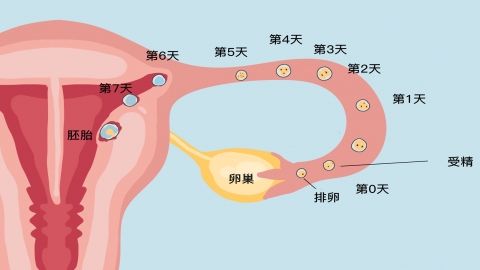What are the obvious symptoms of a stopped fetal development?
Generally, there may be obvious symptoms of fetal stoppage such as reduced early pregnancy reactions, light vaginal bleeding, abdominal pain, disappearance of fetal movement, and the uterus no longer enlarging. If discomfort occurs, timely medical attention is recommended. Detailed analysis is as follows:

1. Reduced Early Pregnancy Reactions
In early pregnancy, hormone levels such as human chorionic gonadotropin (hCG) rapidly increase, causing early pregnancy symptoms like nausea, vomiting, and breast tenderness. When embryonic development stops, hormone secretion no longer continues to rise and may even start to decline, leading to a gradual reduction in these early pregnancy symptoms—for example, less frequent nausea and reduced breast tenderness.
2. Light Vaginal Bleeding
After embryonic arrest, the connection between the embryo and the uterine wall gradually loosens, and the decidual tissue inside the uterus begins to peel away, resulting in minor bleeding. Blood discharges through the vagina, typically appearing as brown or dark red secretions, with a volume generally less than menstrual flow. This is a relatively common early sign of fetal stoppage.
3. Abdominal Pain
Following embryonic arrest, the uterus contracts in an attempt to expel the nonviable embryo. These contractions stimulate nerves around the uterus, causing abdominal pain. The severity varies among individuals, typically manifesting as lower abdominal dull pain or a feeling of pressure. As uterine contractions intensify, the pain may progressively worsen.
4. Disappearance of Fetal Movement
In the second trimester and beyond, pregnant women can distinctly feel fetal movements. If embryonic development ceases and the fetus no longer exhibits vital activity, fetal movement naturally disappears. A sudden interruption of previously regular fetal movements is a clear and serious sign of fetal arrest, and immediate medical evaluation is necessary upon noticing this symptom.
5. Uterus No Longer Enlarging
Under normal circumstances, as gestational weeks increase and the fetus grows, the uterus also enlarges accordingly. However, when embryonic development stops, fetal growth halts, and the uterus ceases to enlarge, sometimes even showing signs of shrinking. During prenatal checkups, measurements of uterine height and abdominal circumference may reveal values inconsistent with the corresponding gestational age.
These symptoms indicate possible abnormalities in embryonic development. Once pregnant women notice these signs, they must seek hospital examination promptly for timely intervention.




